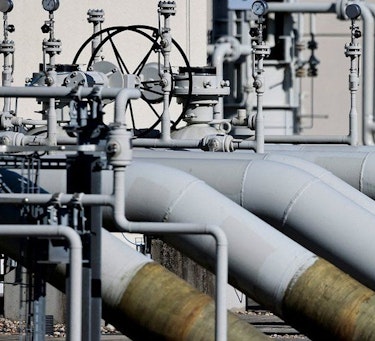Russia's war in Ukraine and the European energy conundrum

Russia's war in Ukraine has had direct and severe effects on European energy supplies.
Russia's decision to invade Ukraine on the 24th of February 2022 was a watershed event in European history and has now been the grim reality for more than seven months. It is a great war between two of Europe's biggest countries in territorial terms and has directly impacted the lives of more than 190 million Ukrainian and Russian citizens. However, the war has also had huge implications for the rest of Europe, and for international relations in general.
Russia has been a major supplier of energy to Europe since the 1980's, and an independent Ukraine has since 1991 played an important role as a transit area for supplies of energy from Russia. The war has not only had an impact on the two countries involved in the conflict but also on millions of energy consumers in Europe. They are now facing the upcoming winter without sufficient supplies of energy as imports from Russia are declining. Up until recently Russia supplied 40 percent of the gas and almost 25 percent of the oil that the EU market needs to cover its energy needs.
There are several reasons why Russian energy is not currently available in the European market, causing concern and forcing the EU and national authorities to design and implement special measures to deal with the obvious energy crisis.
First, the EU has decided to implement eight rounds of sanctions to send a strong signal to Russia, to condemn the war against Ukraine and to constrain Russia's ability to continue its military operation by reducing its military capabilities. Some of these sanctions were tailored to target the Russian energy sector that generates huge revenues for the Russian state, that among other things has been spent on the modernization of the Russian armed forces over the past decades. The hope is that by constraining Russia's access to a highly profitable EU energy market, the EU will also reduce Russia's ability to finance its war in Ukraine and in the medium-term force a change in Russian policy.
Second, in a response to Western sanctions, Russia has also decided to cut its energy supplies to Europe, without changing its approach to the conflict in Ukraine or stopping its military operations in the country. Russia has also embarked on the policy of market diversification by redirecting oil flows to other markets, for instance China and India. However, Russia faces a serious gas challenge as most of its gas export has traditionally reached the European market and Russia has not managed to build infrastructure that could be used to redirect gas flows to Asia.
The energy relations between Russia and the EU has often been presented as a case of strong interdependence. The interconnected relationship was expected to reduce the risk of conflict between the two actors, as both were equally invested in what seemed to be a win-win situation. However, after Russia's decision to invade Ukraine on the 24th of February, it is clear that the allegedly strong interdependence has not played the expected conflict mitigating role. The EU is now looking for ways to reduce its energy dependence on Russia - or even severing energy relations with Russia all together. Russia has on the other hand not hesitated to weaponize its energy supplies and has with that punished the EU for its firm support of Ukraine.
It seems that the damage inflicted on the EU-Russian relationship is irreversible, and even after the end of the war there will be no appetite in the EU to rebuild energy relations with Russia whom is no longer viewed as a reliable partner. In addition, the ongoing energy turbulence will most likely push the EU to speed up its energy transition and phase out fossil fuels from its energy mix. This can also have implications for Norway as a major energy supplier to the EU, but that is a whole different story.
For further reading:
Russian energy and grand strategy:
EU Energy Emergency Intervention:
An assessment of Europe’s options for addressing the crisis in energy markets:
https://www.bruegel.org/sites/default/files/2022-09/PC%2017%202022.pdf